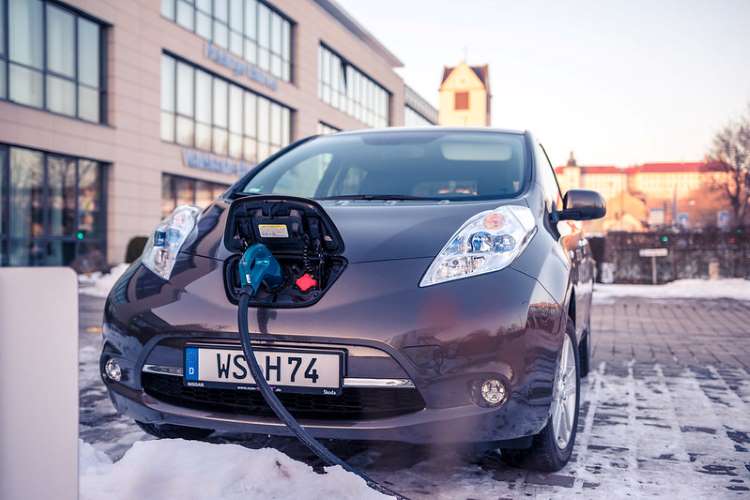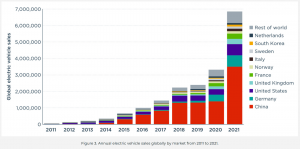
Electric vehicles account for 5% of new car sales in the United States, an important milestone ahead of mass adoption of EVs. If the US followed the trend in other markets that reached this threshold, 25% of all cars sold in the world’s second largest car market would be EVs in a matter of another three years, according to a Bloomberg analysis.
EV may account for a third of global passenger vehicle sales by 2028 and more than half by 2035, according to consulting firm AlixPartners. The auto industry is expected to invest more than half a trillion dollars on EVs and batteries in the next four years, it says. The auto industry is struggling against economic and supply chain constraints in its effort to meet the rising demand for electric vehicles. The supply chain issues are expected to continue into 2024.

EVs have emerged as clear winners in the race to replace vehicles run by internal combustion engines. Automakers experimented with technologies such as biofuels, hydrogen fuel cells and electric batteries in an effort to cut greenhouse-gas emissions. Transportation is one of the major sources of GHG emissions, accounting for around a fifth total emissions.
READ I Hydrogen fuel cell cars make small gains amid EV surge
Sales of electric vehicles soar
The demand for electric vehicles is expected to grow exponentially as world nations and businesses race to meet their emission cut targets. The transition to EVs is expected to lead to a major disruption in the mobility industry. It may also see several auto brands ceding spaces to new ones with environment-friendly technologies.
Global sales of electric vehicles touched 6.9 million last year, more than doubling the previous year’s tally. Of the total, 98% were light-duty vehicles (LDVs) and 2% were heavy-duty vehicles (HDVs). The largest EV market, China, saw a 150% jump in EV sales to 3.5 million units, accounting for more than half of global sales.
Chinese car maker BYD overtook Elon Musk’s Tesla as the largest electric vehicle globally. It sold 641,000 vehicles in the first half of the year, compared with 564,000 vehicles by Tesla. BYD’s numbers reflect China’s pole position in EV production. The country is set to achieve the target of EVs comprising 40% of all vehicles sold in the country by 2030. The country will put in place charging infrastructure to cater to 20 million EVs by 2025.
European countries together accounted for the sale of 2.3 million EVs in 2021, an increase by two thirds compared with the previous year. The US saw record EV sales in 2021 at 667,731 units, a 103% rise from the previous year.

